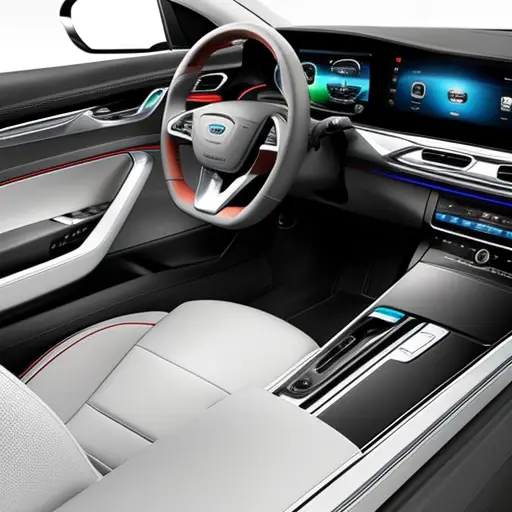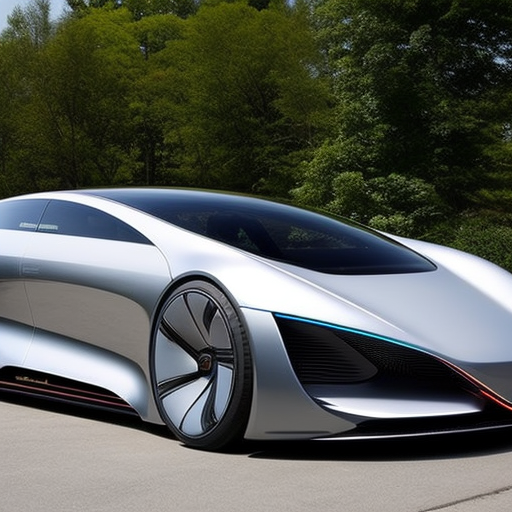Integrating Smart Technology Into Your Car

Did you know that by 2025, it’s estimated that nearly 100% of new cars will be equipped with smart technology?
The integration of smart technology in cars is revolutionizing the driving experience, offering a myriad of benefits to drivers.
From advanced safety features to seamless smartphone integration, the latest innovations in automotive tech are optimizing the way we drive.
In this article, we will explore the advantages and advancements of integrating smart technology into your car.
Advantages of Smart Technology in Cars
Integrating smart technology into cars enhances safety, convenience, and efficiency. Improved connectivity is one of the key advantages of smart technology in cars. This technology allows vehicles to connect with other devices, such as smartphones, to provide real-time traffic updates, weather forecasts, and access to a wide range of entertainment options.
Enhanced convenience is another significant benefit. Smart technology enables features like voice-activated controls, hands-free calling, and advanced navigation systems, making it easier for drivers to stay focused on the road while accessing the information they need. Furthermore, smart technology can automate various tasks, such as adjusting climate control and parking assistance, contributing to a more seamless driving experience.
Integrating these advancements not only elevates the driving experience for consumers but also leads to more efficient and safer journeys. As smart technology continues to evolve, the potential for further improvements in connectivity and convenience in cars is vast, promising an even more integrated and intuitive driving experience in the future.
Latest Innovations in Automotive Tech
The latest innovations in automotive tech are enabling cars to seamlessly integrate with a wide array of smart devices and systems, enhancing connectivity and convenience for drivers. One of the most significant advancements is the development of autonomous vehicles, which have the potential to revolutionize the automotive industry. These vehicles use advanced technologies such as LiDAR, radar, and cameras to navigate and operate without human intervention. The future implications of autonomous vehicles include improved road safety, reduced traffic congestion, and increased mobility for individuals who are unable to drive.
In addition to autonomous vehicles, there has been a notable focus on eco-friendly advancements in automotive technology. Sustainable driving is becoming increasingly important, and manufacturers are incorporating features such as hybrid and electric powertrains, regenerative braking systems, and lightweight materials to reduce environmental impact. These eco-friendly advancements not only benefit the environment but also offer cost savings for drivers through improved fuel efficiency and reduced emissions.
As the automotive industry continues to evolve, these latest innovations pave the way for a more connected, efficient, and sustainable driving experience.
Enhancing Safety Through Smart Features
Enhancing safety in modern vehicles involves integrating smart features that utilize advanced technologies for improved driver assistance and accident prevention. Smart sensors play a crucial role in this aspect by continuously monitoring the vehicle’s surroundings, detecting potential hazards, and providing real-time alerts to the driver. These sensors are designed to detect objects in blind spots, warn of potential collisions, and even assist in parking maneuvers.
Moreover, emergency alerts are an essential component of smart safety features. In the event of a collision, advanced systems can automatically alert emergency services, providing crucial location information and potentially saving lives. These alerts can also notify authorities in the case of vehicle theft, enhancing security beyond traditional measures.
Furthermore, the integration of technologies such as lane departure warning systems, adaptive cruise control, and automatic emergency braking further contributes to enhancing vehicle safety. These features leverage smart sensors and real-time data processing to assist drivers in avoiding accidents and mitigating the severity of collisions.
Seamless Smartphone Integration
With the increasing demand for connectivity and convenience, seamless smartphone integration has become a pivotal aspect of modern car technology. This integration allows drivers to seamlessly connect their smartphones to the car’s infotainment system, enabling access to various features and apps while maintaining focus on the road.
Here are some key aspects of seamless smartphone integration:
-
Wireless Connectivity: Modern car technology enables wireless connectivity between smartphones and the car’s infotainment system. This allows for a clutter-free environment and eliminates the hassle of dealing with cables while ensuring a seamless connection.
-
Voice Control: Integration with voice control systems such as Apple CarPlay and Android Auto enables hands-free operation of smartphone functions. This not only enhances convenience but also contributes to safer driving by minimizing distractions.
-
App Integration: Seamless smartphone integration allows for the integration of various apps such as navigation, music streaming, and messaging platforms. This integration enables easy access to these apps through the car’s infotainment system, providing a user-friendly and convenient experience for the driver.
Seamless smartphone integration is continuously evolving, providing drivers with enhanced connectivity and convenience while prioritizing safety on the road.
Optimizing Your Driving Experience
To optimize your driving experience, consider incorporating smart technology for enhanced performance and convenience.
Fuel efficiency is a key consideration for many drivers, and smart technology can play a significant role in achieving this. Advanced systems can monitor driving habits and provide real-time feedback to help improve fuel economy. Additionally, some smart vehicles are equipped with predictive technology that can analyze traffic patterns and suggest the most fuel-efficient routes. By leveraging these capabilities, drivers can minimize fuel consumption and reduce their environmental impact.
Traffic navigation is another crucial aspect of optimizing the driving experience. Smart technology can provide real-time traffic updates and suggest alternative routes to avoid congestion. This not only saves time but also contributes to a more efficient and less stressful driving experience. Furthermore, some smart vehicles are equipped with adaptive cruise control and lane-keeping assistance, which can help navigate through traffic with ease and enhance overall safety.
Incorporating smart technology for fuel efficiency and traffic navigation can significantly enhance the driving experience by providing drivers with the tools and information needed to make informed decisions on the road.
Frequently Asked Questions
How Does Smart Technology in Cars Impact the Environment and Sustainability?
The integration of smart technology in cars affects the environment and sustainability through improved energy efficiency and reduced emissions. These advancements enhance eco-friendly driving practices, contributing to a more sustainable future for the automotive industry.
What Are the Potential Security Risks Associated With Integrating Smart Technology Into Cars?
Cybersecurity threats and data privacy concerns in cars have become critical issues. The potential risks associated with integrating smart technology into cars include hacking, unauthorized access to vehicle systems, and compromised personal data, posing significant safety and privacy threats.
Are There Any Legal or Regulatory Implications to Consider When Using Smart Technology in Cars?
There are numerous legal implications and regulatory compliance requirements to consider when utilizing smart technology in cars. These include data privacy laws, liability issues, and adherence to industry standards, all of which necessitate careful navigation for seamless integration.
How Does Smart Technology in Cars Affect Insurance Rates and Policies?
The impact of smart technology in cars on insurance rates and policies is significant. Usage data can be collected to assess driving behavior, potentially affecting costs and savings based on individual risk profiles.
What Are the Long-Term Maintenance and Repair Costs Associated With Smart Technology in Cars?
Cost implications of integrating smart technology in cars include potential long-term maintenance and repair expenses. Reliability concerns may arise due to the complex nature of these systems, impacting overall operational costs and the need for specialized expertise.
Conclusion
In conclusion, integrating smart technology into cars offers numerous advantages, including enhanced safety features, seamless smartphone integration, and an optimized driving experience.
The latest innovations in automotive tech continue to push the boundaries of what is possible, creating a driving experience that is more efficient, convenient, and enjoyable.
As technology continues to evolve, the integration of smart features into cars will continue to redefine the driving experience, making it more connected and technologically advanced than ever before.




